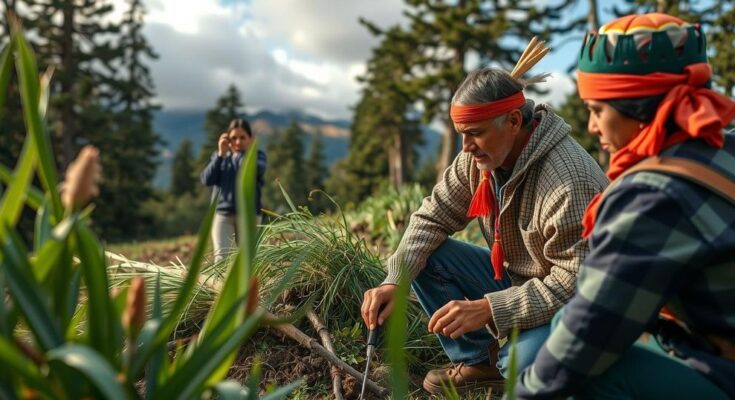Dr. Danielle Touma collaborates with the Karuk Tribe in California to address the increasing risks of wildfires and climate change. Utilizing her expertise in climate modeling and combining it with Indigenous ecological knowledge, she aims to empower the tribe to assess and manage future environmental challenges. This partnership sets a precedent for similar collaborations nationwide, highlighting the importance of integrating traditional practices with modern science.
Danielle Touma, a research professor at the University of Texas, Austin, draws from her childhood experiences in drought-prone Lebanon to inform her work on climate-related challenges. With a PhD in earth system sciences, her research focuses on the effects of climate change on wildfire, drought, and heavy rainfall patterns. Recently, she has shifted her focus to direct collaboration with the Karuk Tribe of Northern California, applying her expertise to real-world applications in tribal lands.
While working with the National Center for Atmospheric Research, Dr. Touma engaged in a project that aimed to assess wildfire risks for the Karuk Tribe, alongside an academic with deep ties to the community. This collaboration inspired her commitment to support the tribe in understanding and mitigating the implications of increasing wildfire threats on their cultural practices and subsistence.
Climate change has significantly impacted the traditional food sources of Native American tribes across the United States, with extreme weather events, biodiversity loss, and disrupted livelihoods exacerbating their vulnerabilities. Over the past two decades, California has seen a marked increase in large wildfires, highlighting the urgency of this issue. Through her work, Dr. Touma seeks to integrate tribal ecological knowledge with state-of-the-art modeling techniques to empower the Karuk Tribe in assessing future risks and strategizing effective responses, such as prescribed burning to manage wildfire hazards.
Dr. Touma is forging a framework that fuses the valuable insights derived from Indigenous stewardship of the land with contemporary scientific methods. This innovative approach holds promise not only for the Karuk Tribe but may also serve as a model for collaboration between scientists and Indigenous communities nationwide. She emphasizes the importance of co-creating research efforts to address the pressing challenges posed by climate change and extreme weather.
The article highlights the collaboration between Dr. Danielle Touma and the Karuk Tribe, emphasizing the impact of climate change on Indigenous communities, particularly regarding environmental stewardship and traditional practices. Dr. Touma’s unique background in water resources and earth system sciences equips her to tackle the issue of increasing wildfire risks in California, while the Karuk Tribe possesses time-honored knowledge of their land and ecological systems. This collaboration aims to develop predictive models that meld scientific research with Indigenous wisdom to bolster the tribe’s resilience to climate change.
In conclusion, Dr. Danielle Touma’s partnership with the Karuk Tribe exemplifies a vital intersection of modern scientific research and traditional ecological knowledge. By developing a climate projection framework tailored to the tribe’s unique circumstances, Dr. Touma seeks to provide tools for understanding and mitigating wildfire risks. This initiative not only serves the immediate needs of the Karuk Tribe but also illuminates a pathway for future collaborations between scientific communities and Indigenous populations in addressing climate change challenges.
Original Source: thestoryexchange.org




